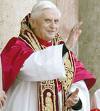
‘Tell Them I’m Not Home’ is a lightly fictionalized memoir of growing up in the Olney section of North Philadelphia in the decade following World War II, a place not unlike Jean Shepherd’s Hammond, Indiana of a decade earlier. The close-quarters life in a blue-collar neighborhood of row-house streets provided the author with a cast of characters, many funny, some scary, as well as a near-endless litany of stories. ‘Tell Them I’m Not Home’ is a ticket back to the Olney & Philadelphia of the late 1940s and early 1950s, a place as singular, colorful and as lost to today as Hapsburg Vienna or tenement New York.
Contact:
olney.memoir@gmail.com
More Info:
www.petebyrne.com
::::::::::::::::::::::::::::::::::::::::
Buy The Book:
Amazon | Barnes & Noble
:::::::::::::::::::::::::::::::::::::::::
Sample Chapters:
“The Glory That Was Rome”
In neighborhoods like Olney, people sorted themselves out along a variety of fault lines. Phillies fans versus those who allied themselves with Connie Mack’s pitiful Athletics, those with Lionel Electric trains against those with American Flyers, the cheaper Father and Son shoes against the pricier Flagg Brothers, Luckies or Camels, and on and on and on. But the defining separation among the people who populated the neighborhood of my childhood was the religious split between Catholics and the Protestants. Among Catholics like us, the prevailing interpretation of Protestantism encompassed anyone who wasn’t a Catholic. (Click here to continue…)
“Happy Birthday Patsy Mullins”
I was coming down 5th Street when I met Eddie Matthews who was coming the other way. In the course of the kind of conversations that twelve-year-olds, newly minted twelve-year-olds, carry on, Eddie asked if I were going to Patsy Mullins’ birthday party. The question kind of bounced off me. Like what birthday party, and why would Patsy Mullins invite me to her birthday party? In the sexually segregated Irish, Latin, Roman Catholic world of late 1940’s Philadelphia where this conversation was taking place, I was very much aware of young Ms. Mullins. But although we were in the same grade in the same parish school, we had never exchanged more than a “Hi” when passing on the street. Seventh grade boys were on one floor of the school building and girls on the other. In all the years I had spent in the Incarnation of Our Lord parish school, I couldn’t remember any interaction between them and us. The seventh-grade girls could have been Albanians or Martians. (Click here to continue…)
“Kenny Bergman”
On Christmas Day, 1950, Kenny Bergman and I sat on his living room sofa smoking cigarettes. I was thirteen. Kenny’s mother was visible, working away in the kitchen. The house smelled of roasting turkey and the radio was on, Bing Crosby singing carols. On the other side of the room under the Christmas tree a set of American Flyer electric trains moved slowly around a platform filled with little houses, cars and mountain-paper tunnels. Each time the train emerged from the nearest tunnel, Kenny or I would raise his Daisy Targeteer BB pistol and aim for one of the glass Christmas tree ornaments he’d placed in a gondola or on a flat car. Several times, a smiling Mrs. Bergman walked through the living room. She never said a word. I thought I was in heaven. (Click here to continue…)
“Tell Them I’m Not Home”
I got in from school around three-thirty. At a quarter to four, the phone in the living room rings. “Oh shit,” I thought. As my mother moved to pick up the receiver, I shouted down from the landing, “tell them I’m not home, Mom. Tell them I’m not home.” I knew who was on the phone. It was Rudy Bederman, the assistant manager at the A & P on 5th Street, and I knew what he wanted. It was Thursday. I wasn’t scheduled to work until the next day, Friday. Somebody hadn’t shown up and they wanted me to fill in. I had nothing on my afternoon agenda other than walking over to Fairhill Street to hang out with the crowd at Geever’s candy store. My mother was not to be trusted in these matters. To impart a sense of urgency, I kept up my chant. “Mom! Mom! Tell them I’m not home.” Unfortunately, in the seconds that my mother hesitated with the receiver in her hand, Rudy Bederman heard me shouting that I wasn’t home. (Click here to continue…)
“Do You Believe In Magic?”
In September 1954, my senior year of high school had just begun, just barely. I had flunked summer school, my third summer school in as many years. According to the rules that meant I wouldn’t be going back to my high school. I would have to go to a public school and repeat junior year. (Click here to continue…)
all content copyright Pete Byrne 2011

 What ever has happened to the Roman Catholic Church, my church, the one I knew in the nineteen-forties and fifties, the church that seemed to utterly dominate my childhood? What happened?
What ever has happened to the Roman Catholic Church, my church, the one I knew in the nineteen-forties and fifties, the church that seemed to utterly dominate my childhood? What happened?